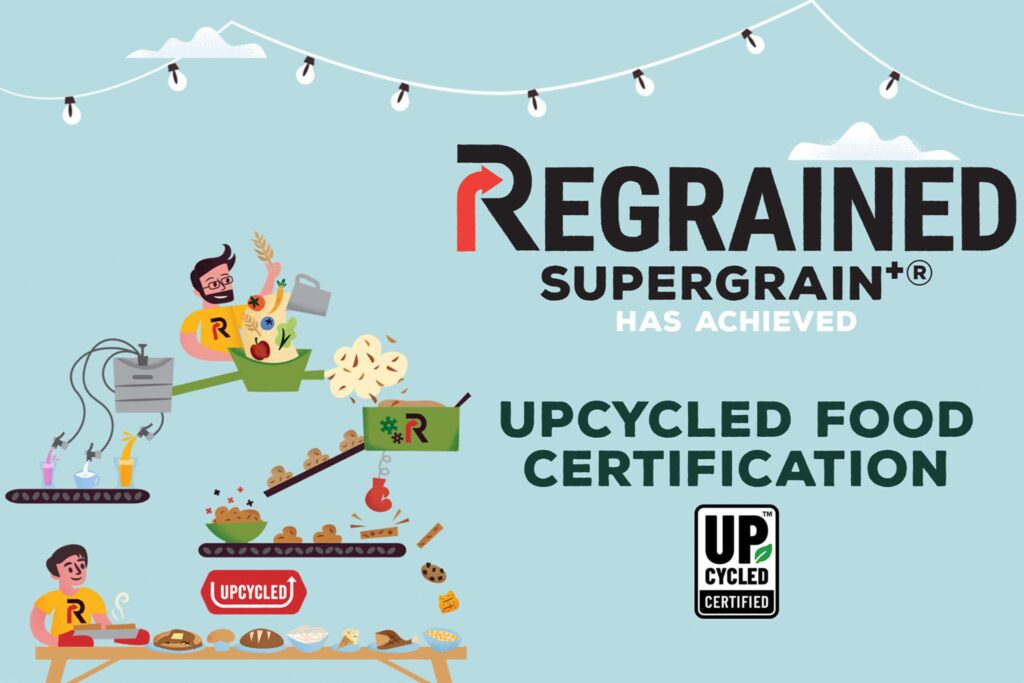BERKELEY, CA — ReGrained, a food upcycling platform and snack producer, announced that its SuperGrain+ flour is the first ingredient in the world to receive certification from the Upcycled Food Association.
The US alone generates more than 20 billion lbs of spent grain from beer brewing each year. After the sugar is extracted for brewing, this nutritious grain typically becomes food waste — representing a significant environmental footprint. ReGrained utilizes its patented technology, co-developed with the USDA, to safely rescue this food supply and craft ReGrained SuperGrain+, an innovative and versatile ingredient for use in baked goods and beyond. SuperGrain+ delivers a minimum of 3.5-times the fiber and twice the protein of whole grain flours. Every pound prevents the carbon dioxide equivalent of burning 1 lb of coal and saves more than 300 gallons of water.









